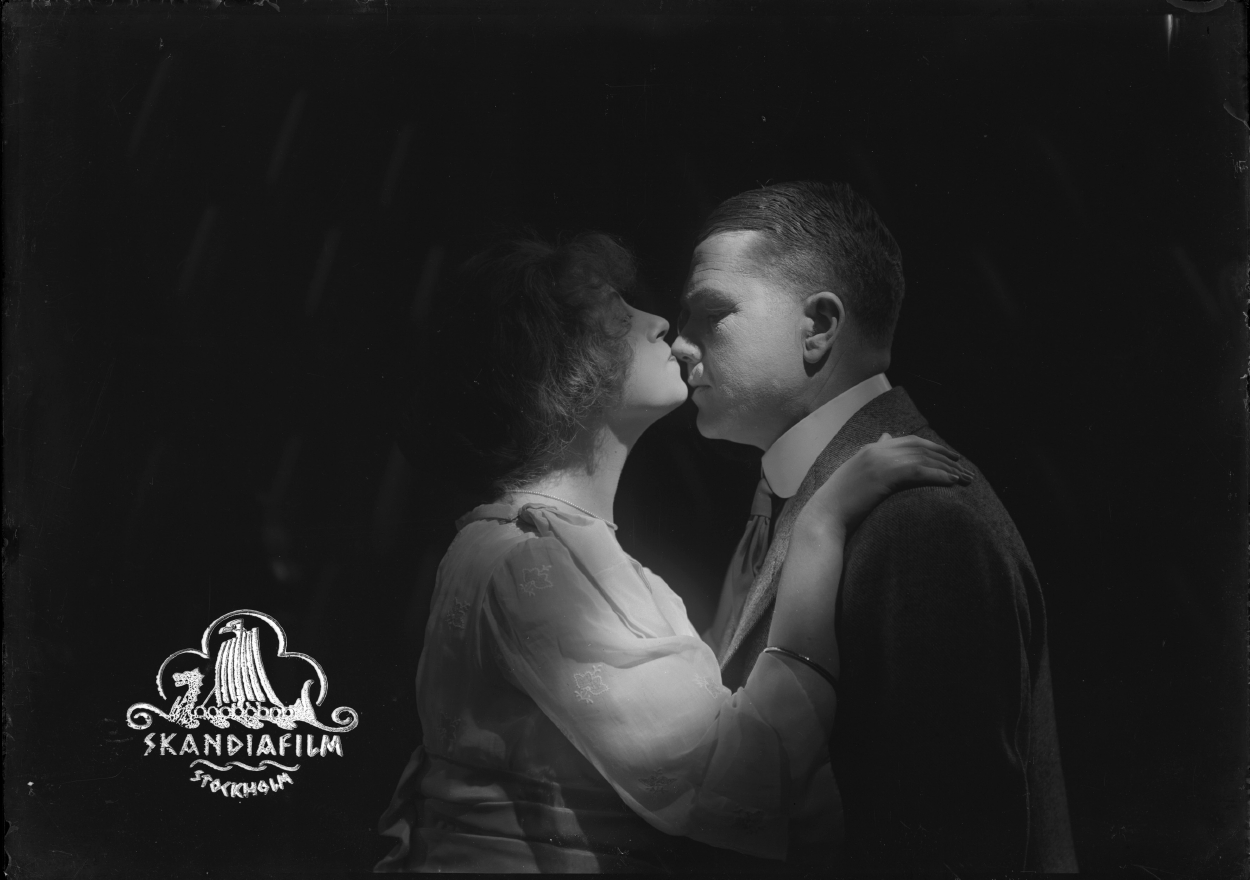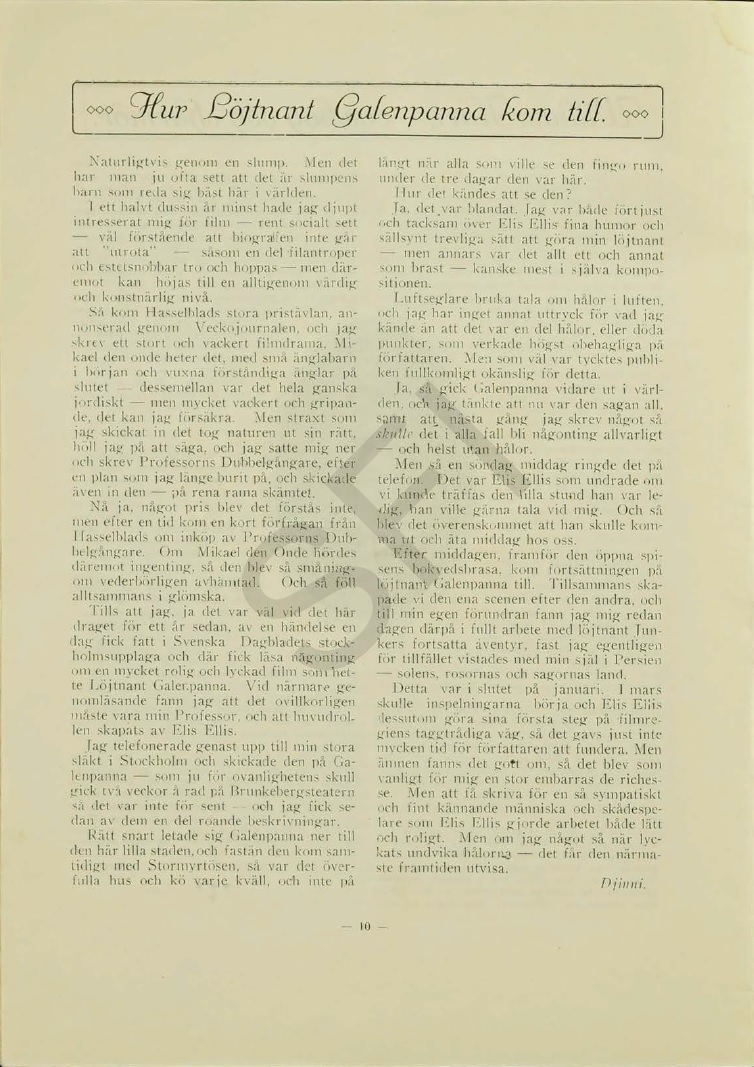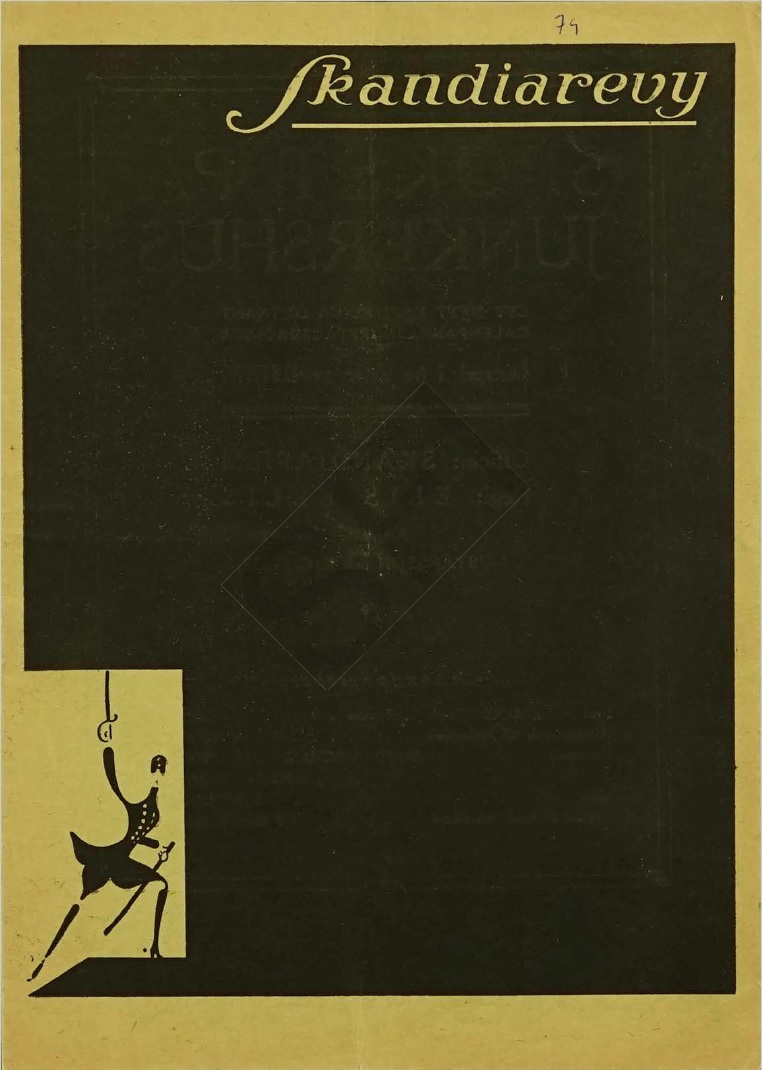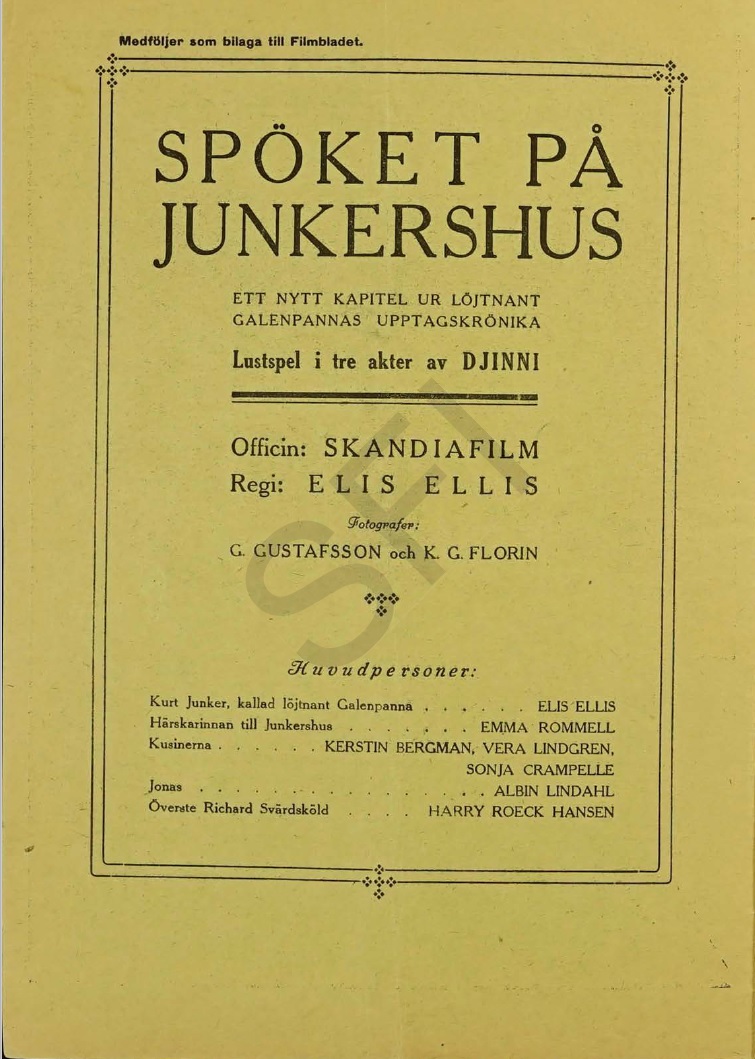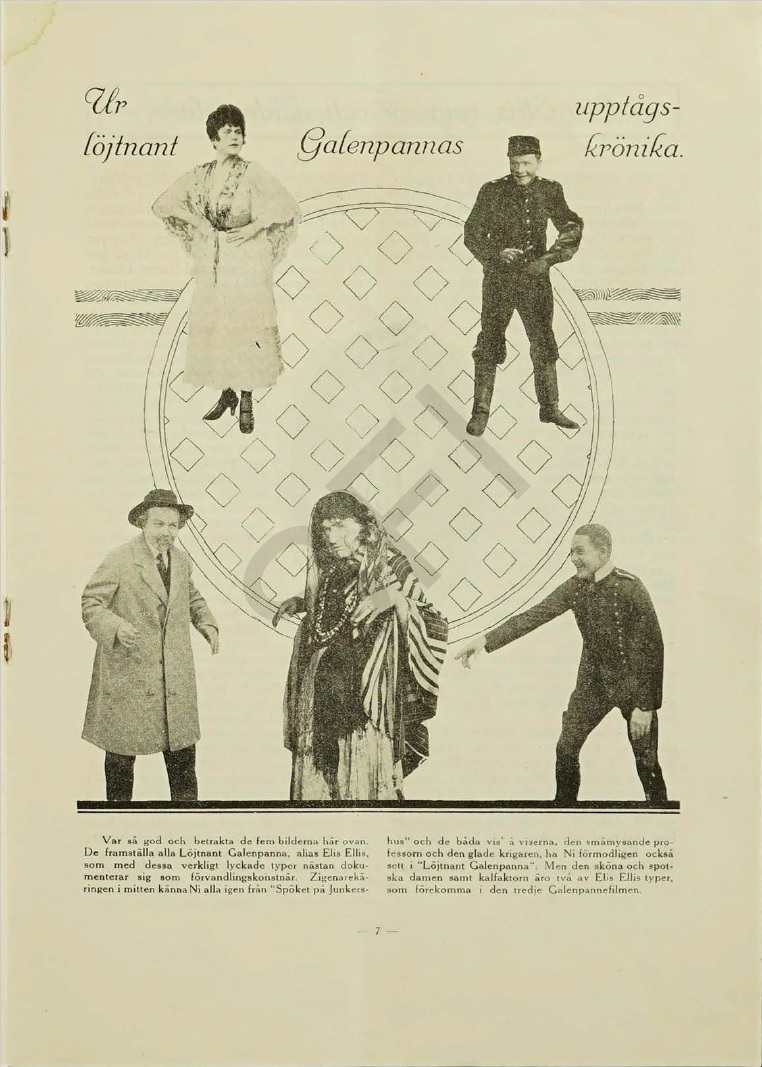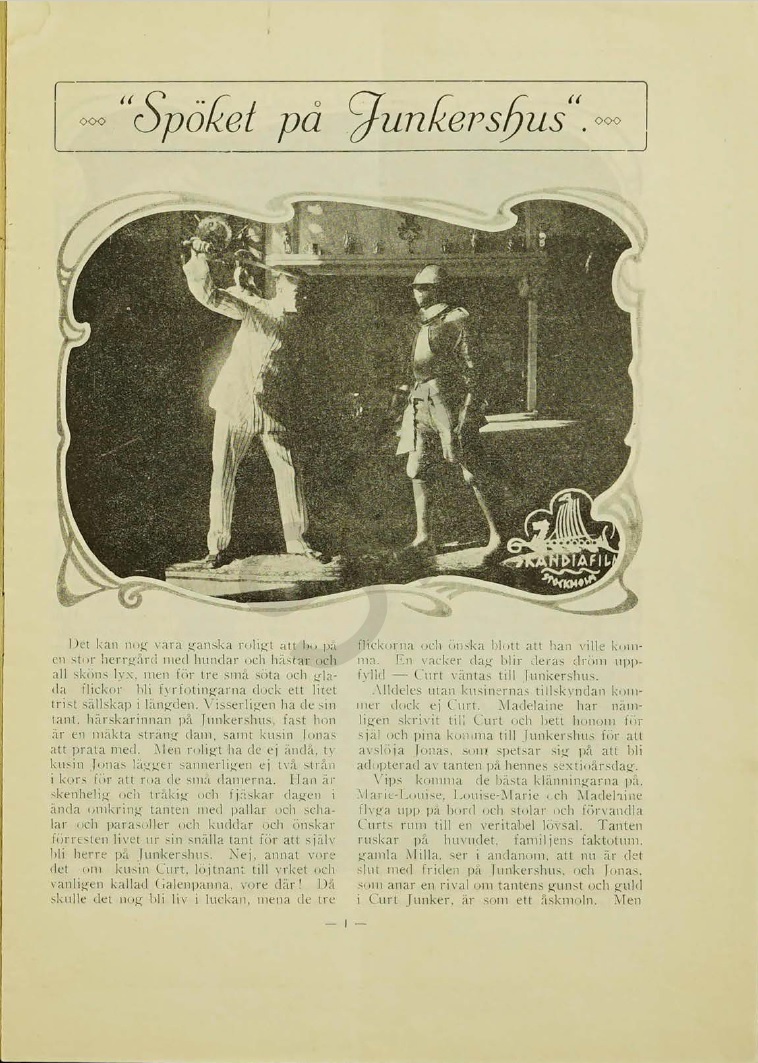By pure chance, of course. But then again children of chance, as one has often seen, are those who make their way through life in the best of manners.
For a half-dozen years I had nourished a profound interest in motion pictures – well understanding that the cinema theatre cannot be ”eradicated” – as has been the belief and hope of some philanthropists and aesthetically inclined snobs – but rather, it can be elevated unto a thoroughly dignified as well as artistic level.
Then came the big Hasselblad competition, advertised through the Veckojournalen magazine, for which I composed a grand and handsome drama by the name of Mikael den Onde (“Mikael the Evil”), sporting some infant angels at the start and ending up with a group of grown-up and sensible angels – and in between there were some things that were quite earthly – all of it quite beautiful and gripping, I shall assure. But as soon as I had submitted this work, nature, as it were, took its course and I promptly sat down to write Professorns Dubbelgångare (“The Professor’s Doppelganger”), all according to a plan I had been harbouring for some time, and I submitted this result as well – tongue firmly in cheek.
All said and done, no prize ever came my way – however, there was a little later a brief enquiry courtesy of the Hasselblad studios, requesting to purchase the “The Professor’s Doppelganger”. On “Mikael the Evil” nothing was said, and it was eventually picked up accordingly. And successively confined to oblivion.
Until I, well, probably a year ago at the time of writing, by happenstance picked up a Stockholm edition of Svenska Dagbladet and therein read about something regarding a highly amusing and felicitous film called Löjtnant Galenpanna (“Lieutenant Madcap”, 1917). Upon closer scrutiny I found this to unconditionally be none other than my Professor, and that the main part had been created by Elis Ellis.
Right away, I telephoned my sizable Stockholm family and sent them off to watch the Madcap – which quite uniquely played for two straight weeks at the Brunkeberg theatre, so there was still time – and they later provided me with some pleasing accounts.
Reasonably soon, the Madcap also found its way to this my little town, and despite the fact that it played alongside the Stormycroft Girl (referencing Victor Sjöström’s Tösen from Stormyrtorpet/Girl from Stormy Croft [US]/The Woman He Chose [UK], 1917), there were full houses and long lines each night, and far from everyone who wanted to see it managed to get seats during the three days it showed.
How, then, was it to see?
Well, a mixed experience. I was both delighted and grateful for the fine sense of humour provided by Elis Ellis as well as his exquisitely pleasant ways in dealing with my lieutenant – but apart from that there were certainly some flaws – perhaps most of all in the composition itself.
Aeronauts sometimes speak of pockets in the air and I cannot find another expression for my sentiments other than those reoccurring pockets, or dead spots, which did not sit well with the author. Fortunately, the audience showed no sensitivity at all in this regard.
And then the Madcap made his way out into the world, and I though no more of this saga, and added a mental note of doing something more serious in my next writing attempt – preferably without any pockets.
Then one Sunday, the telephone rang. It was Elis Ellis who wondered if we could meet up during the short span of time that he had on his hands, he would be very pleased to talk to me. And so it was decided that he would come out and dine with us.
After our meal, in front of the open fireplace with its crackling beech logs the sequel to “Lieutenant Madcap” was conceived. Together we created one scene after another, and to my own amazement I found myself already on the next day fully engaged in the continued adventures of Lieutenant Junker, despite the fact that I had my soul at the moment firmly located in Persia – the land of sun, roses and fairy tales.
This was late January. Come March the shooting would begin with Elis Ellis also initiating his first steps upon the barb wired road of the film director, so there was no time for the author to ponder. But there is no lack of subjects, so it was for me as usual a great embarras des richesse. But to be able to write for such a likeable and fine-tuned person and actor such as Elis Ellis made the work both easy and enjoyable. But if I more or less have managed to avoid those pockets – that one still remains to be seen.
Hedvig Svedenborg (1918)
(translated by Jan Lumholdt, 2023)
